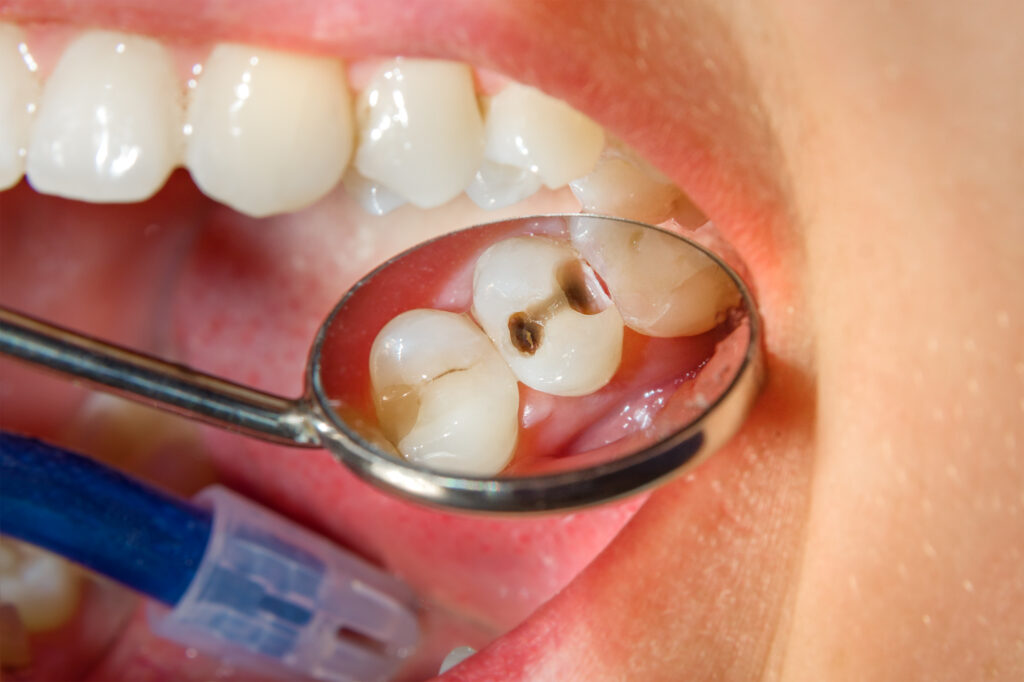Cavities & Cavity Treatment

Cavities are one of the most common challenges in children and adults when it comes to dental hygiene. It is also one of the most preventable, but many people still don’t know how to avoid cavities or what to do if they get them. This blog post will discuss everything you need to know about this disease, including its causes, symptoms, treatments, and prevention methods.
What Is A Cavity
A cavity is a hole in the tooth that can lead to pain, swelling, and infection. It can also create discoloration or sensitivity of your teeth if not treated immediately. There are two types of cavities: decay and erosion. Decay occurs when bacteria break down sugars on the enamel surface after eating food that contains sugar for a prolonged period. Erosion occurs when acid is introduced to the tooth by eating certain foods and drinks, such as candy or soda.
Symptoms Of Cavities
Several symptoms indicate you may have a cavity, like sensitivity while chewing, intense pain in your teeth, bleeding gums, soreness in the gum line, and discoloration on the surface of the teeth. If you are experiencing any of these symptoms, it is best to visit your dentist for an exam as soon as possible to avoid further problems with your teeth and gums.
How To Prevent Cavities
There are a few things you can do to prevent cavities from growing and becoming worse. Brushing your teeth after every meal will help remove any excess sugar on the tooth surface, so it does not stick around long enough for bacteria to have access to it. Flossing daily is also very important as food particles that remain stuck between your teeth create a perfect environment for bacteria to grow and spread. It would help if you also visited your dentist every 6 months so they can perform a professional cleaning of your teeth, which will remove all the plaque that has built up on them, a fundamental cause of cavities.
How To Treat Cavities
If you do have a cavity, your dentist will need to perform a filling procedure to remove the decayed area of the tooth and replace it with material suitable for keeping bacteria out. In addition, your dentist may recommend placing an inlay/onlay or even a crown if significant damage is done to the enamel surrounding the teeth.
When Cavities Go Left Unattended
If you do not treat cavities when they are still small, the tooth will be subject to further damage. The decay can spread deeper into the tooth and even cause a hole in the actual root of your tooth, which may lead to an infection that affects other areas within the mouth and can only be treated with a root canal or even removal of the tooth. There is also a greater risk of developing gum disease and other health issues such as diabetes due to the bacteria in your mouth and how it spreads throughout your body if left untreated for too long.If you need a cavity filled or are worried that a cavity is forming, book an appointment with us to discuss how to treat this issue. We believe in proactive dentistry, so we’ll check it out for you with a smile if you’re not sure.
